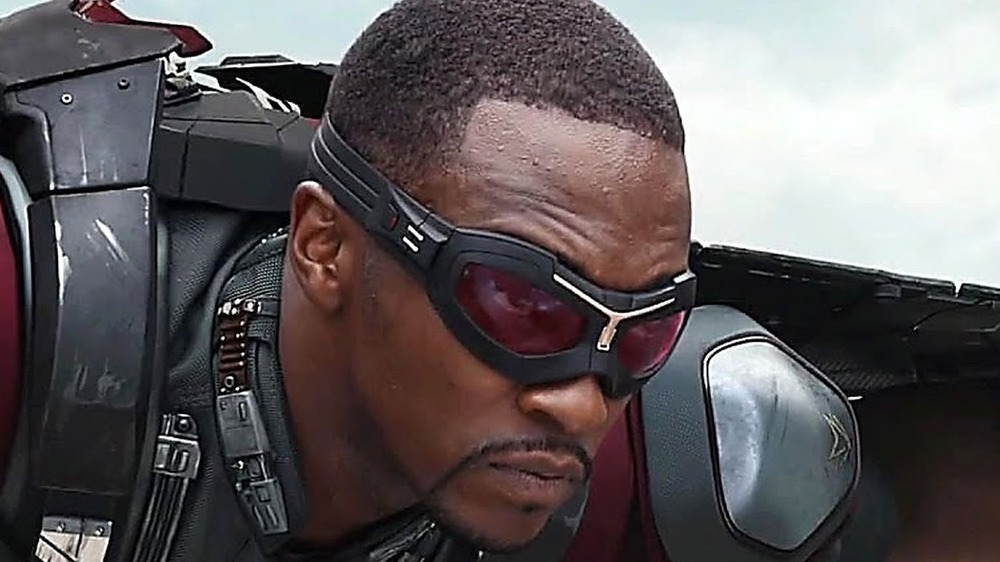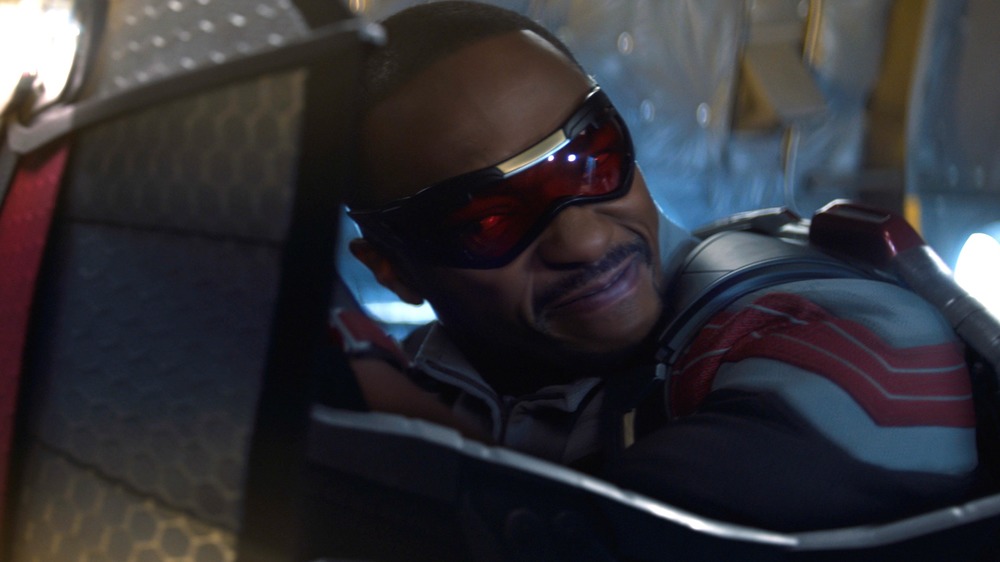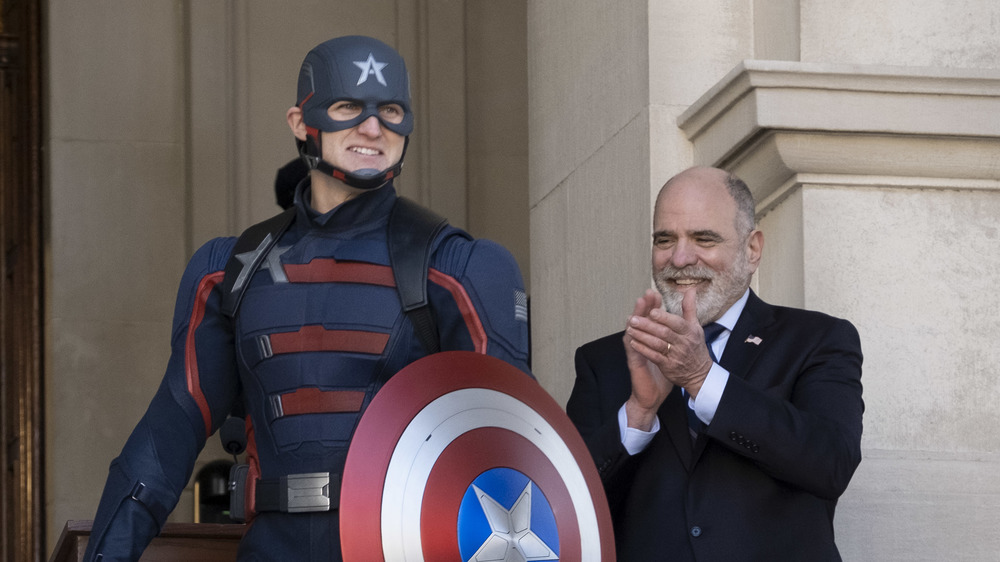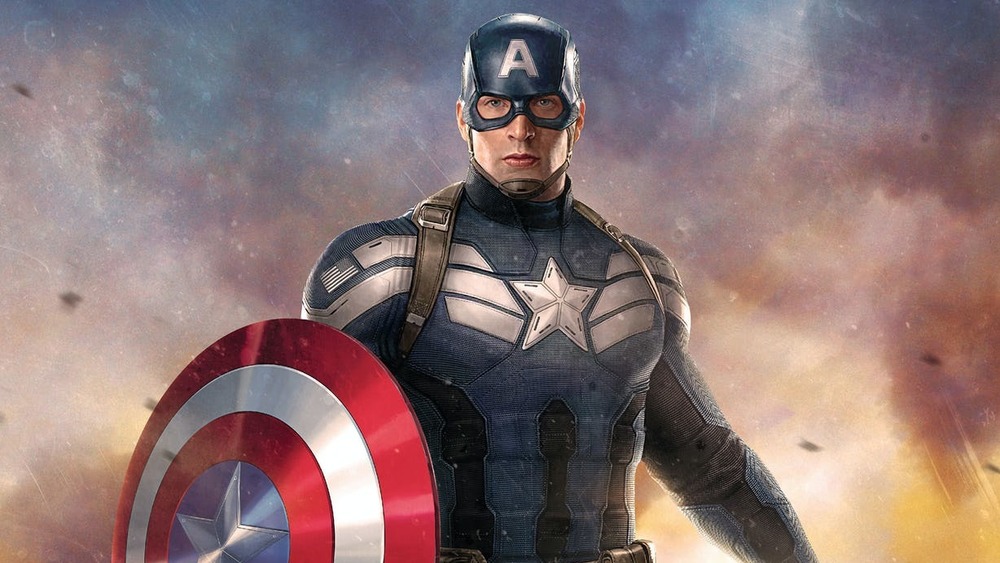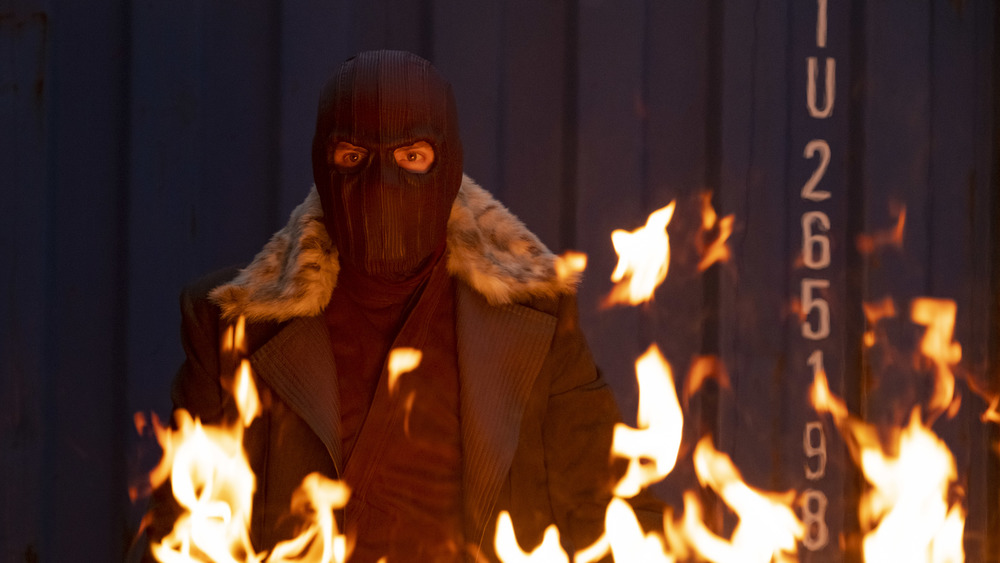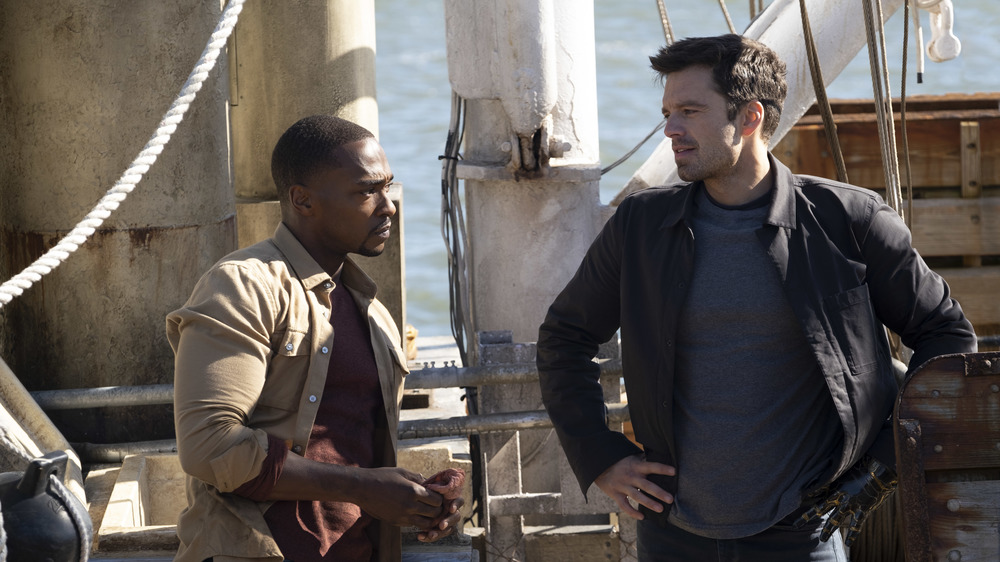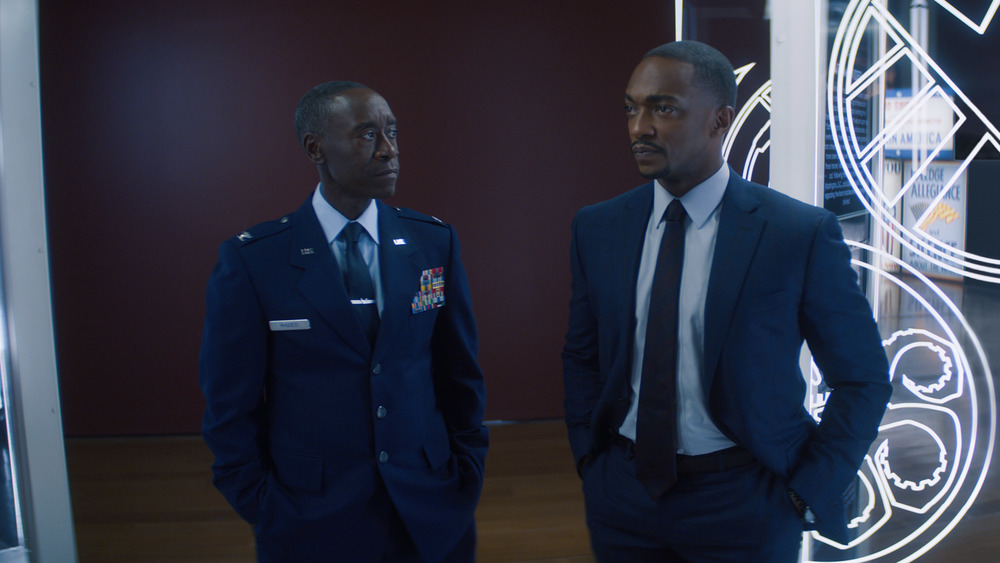The Falcon And The Winter Soldier Director Kari Skogland Teases Captain America's Fate And More - Exclusive Interview
If you're watching The Falcon and the Winter Soldier and director Kari Skogland sounds familiar, there's a reason for that. It would be easier to list the projects the dynamite director hasn't directed than to list the ones she has — odds are good that she's worked on at least one episode of your favorite shows. It almost seems like destiny that Skogland would become an integral part of the MCU: She directed an episode of the unrelated show Endgame and worked on an episode of the short-lived series Once Upon a Time in Wonderland with future Falcon and the Winter Soldier star Sebastian Stan.
While racking up a hefty list of directing credits on popular TV series like Vikings, Penny Dreadful, The Walking Dead, and NOS4A2, Skogland won the British Academy Television Award for Best International Programme for her work on The Handmaid's Tale in 2018. In other words, she's more than earned her shot at directing the first season of The Falcon and the Winter Soldier.
Looper spoke to Skogland during an exclusive interview in which she opened up about the racism Sam Wilson faces in the series, the fate of Captain America, and the biggest challenges of creating a show that is essentially a six-hour MCU movie.
Flying high
In 2020, Anthony Mackie told us the most difficult aspect of the show for him was flying. How challenging was that for you, and what exactly goes into that from a production standpoint?
Well, first of all, it's quite uncomfortable for the flying sequences because he's in his suit, and there's a whole lot of rigging that goes along with it — and obviously, we have to keep him safe. And you can imagine, he's flying, so there's that. So it's, I think, challenging also because there's a reality that has to go into it, and yet there's all this mechanical stuff that's attached to it, so it's...
But Anthony does it without skipping a beat, and when you see... For all that goes into it, that I'm sure in his head, he's thinking, "Oh my God, this thing is killing me," and it's [like] "aghghg." When you see it in the dailies, or when you see it, as you've seen episode one when you see him flying, you would never know that he is in any kind of discomfort at all. So he's a pro.
Was that in front of a green screen?
Uh-huh, yes.
Carrying the shield
I'm going to shoot my shot here: Was Daniel Sousa under that Cap mask at the end of the episode, or was I seeing things?
I think you were seeing things.
Okay. It looked a little bit like [Enver Gjokaj], and I'm like, 'Is this...?' How big of a presence can we expect the memory of Captain America to have on the series?
Well, I think it's throughout the series. It's throughout their characters. This is a man that they loved, a friend. They lost a friend, and it's also, he carried the shield, and he was a very particular kind of Captain America. And he passed the shield on to [Sam], who then has to decide whether or not he wants to take on what that is.
The optics of being a Black Captain America are very specific, and they aren't without their issues. And so he has to really look at it and decide if that's what he wants to do. And I think the legacy of what the shield represented while it was on Steve's arm is affecting every decision [Sam is] making as well. So I think even if he's, whether [Cap is] mentioned or not, I think as a character, he's always in the room.
Well, we see a very wizened Captain America at the end of Endgame, and he was still alive. Now, it seems like he might've passed away in the months since his exchange with Sam. Is he just lying low in his old age, or is he really gone?
We don't know. And our characters don't know either, so there, that's a good question and one we all have.
Fighting fascism
What was the most challenging thing for you as a director?
I think I wanted to make sure that we got the story right. We're talking about some very, very sensitive, relevant topics and subjects that are very important to or very key to what's going on in society as we speak. Certainly, [the] MCU has always been very relevant in talking about even the fundamental core of it, which is, [how] an anti-fascist came out of the war.
And so therefore it had a very particular perspective on elitism and fascism and certain things that were a result of a huge conversation after World War II. Now, we are talking [about] a very different world since then, and so it's a very big conversation that we're having. And so it was really important that we are very thoughtful about the conversation we're having. And that I think is, besides being a challenge, is also a joy, to be...
We really didn't shy away from anything — and that was a very, I think, bold and very joyful place to be. To say, "Let's just dust it off, take out these issues and have a look."
The art of villainy
I was really impressed with where the first episode went. In that regard, I'm excited to see where it goes next. Which MCU guest stars were you most excited to bring onto the show and to expand some of the arcs of characters we might not have gotten a chance to really delve into prior to the show?
Every character that we introduce was exciting for me because, besides having [the old and] the new characters in a six-hour space, you're able to explore. You're able to spend time with the characters. So whether they're a villain or whether they are in some way in any of the categories: anti-hero, protagonist or antagonist, or simply friend or sister, or...
You're able to get to know them a little bit better, which makes them a complex character. So instead of... There are no twirly mustaches going on — it's all nuanced. And like any good villain, it's a slippery slope. They're saying certain things that make sense. It's just whether or not it is something that...
It's the way they see the end result of their actions that's ultimately the conversation about who they are and what they have to say. But within that, the exploring of their perspective, I think, is very interesting, because there's nobody who is 100 percent bad and there's nobody who's 100 percent good.
Taking the world by storm
The production value on this show is absolutely incredible. What were some of your favorite filming locations, and what challenges did each pose — especially given all the unexpected difficulties that stemmed from the pandemic and the shutdowns?
Well, we had an amazing team, so we didn't really... Although we did get shut down, of course, like everybody, but we recovered very quickly, and we traveled. We shot abroad in Europe, and I loved being there. I loved all of our locations for different reasons because they really spoke to an international scope backdrop. So the goal was to embrace that international aesthetic, and I think we achieved that. So every location added to that.
So I don't know that I had a favorite. I think they were all favorites for different reasons and all challenging for different reasons — whether or not maybe because you're in the middle of a street in some small town in Europe, or you're in the U.S. on a main street and dealing with what that is or the sets, or... Actually, very, very few sets [were] really a location-based movie, so we really tried to capture the authenticity, authentic rather, pardon me, the authentic environment, which is different again for Marvel and what they've done in the past.
The nitty gritty
This show seems a little darker and grittier than most MCU movies. Did you have any more allowances being on Disney+ than the usual blockbuster MCU films?
No, and there [were] no barriers, and there was no... The goal was to make it PG 13, and that was about the only... But within that spectrum, you still can go... It's interesting: Dark places are not necessarily dark in that they are in any way hard. They are dark because they're thoughtful. And so really, just like any character, any person, as they're pondering where they are in the planet, after the Blip and after or after the Snap coming back.
Everybody, which is very true of what's happening even now as the pandemic is opening up, where do you sit? What's your purpose? Who are you? These are the same issues that our characters are grappling with as they've just come out of the Snap, and the world has changed. And there's Bucky with his baggage trying to find a fit, and Sam, who's been given a very big choice, he's trying to find a fit and what's relevant for both of them. So we're, I think, taking our characters down a road that is incredibly current.
Don Cheadle had a cameo in the first episode. Can we expect to see him in any future episodes, or will he be too busy with his own show, Armour Wars?
Well, you'll have to see, won't you?
[Laughs] Can you tell me anything about his new show?
No, who? Don Cheadle's show? No, sorry, I don't know anything about it.
On Fridays, MCU fans can watch Sam Wilson and Bucky Barnes suit up as the Falcon and the Winter Soldier on Disney+.
